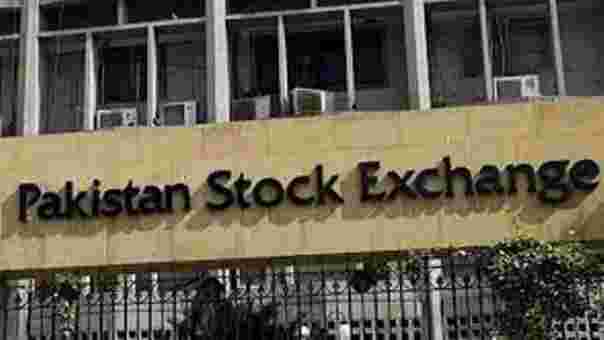Karachi, November 1, 2025 – The Pakistan Stock Exchange (PSX) ended another week on a volatile note, with the benchmark KSE-100 index dropping by 2.3% during the trading week of October 27–31, despite a partial recovery in the final session.
According to a market review by Arif Habib Limited, the index opened the week under pressure due to lackluster corporate earnings and subdued investor confidence across key sectors. However, a notable rebound on Friday helped offset some of the earlier losses. The KSE-100 eventually settled at 161,632 points, down by 3,862 points on a week-on-week (WoW) basis.
In the T-Bills auction, the government successfully raised PKR 1,134.5 billion, exceeding the target of PKR 950 billion, with strong participation of PKR 2,132.4 billion. Yields for the 1-month and 3-month papers fell slightly by 11 bps and 0.1 bps, while 6-month and 12-month yields edged up by 0.4 bps and 10 bps respectively.
Meanwhile, Broad Money (M2) reached PKR 39.8 trillion, reflecting a 0.5% WoW increase as of October 17, 2025. The Monetary Policy Committee (MPC) also maintained the policy rate at 11%, aligning with market expectations.
The State Bank of Pakistan (SBP) reported net foreign exchange interventions of USD 8.4 billion between June 2024 and July 2025, with USD 189 million conducted in July alone.
Banking sector data showed steady growth, as deposits rose 12.3% YoY to PKR 35.2 trillion, while advances increased 9.4% YoY to PKR 13.5 trillion by September 2025.
On the commodities side, oil production increased 9.9% WoW to 66,834 barrels per day, driven by higher output from Dhok Sultan, Nashpa, and Marden Khel fields. In contrast, gas production declined 2.7% WoW, settling at 2,785 mmcfd, mainly due to reduced flow from Shewa, Uch, and Qadirpur.
The Pakistani rupee posted a mild gain of 0.04%, closing at PKR 280.9 per USD.
Market experts anticipate that upcoming inflation data will play a critical role in shaping future monetary policy and investor sentiment. Analysts expect the PSX to remain range-bound next week, barring any major domestic or global triggers.
Currently, the KSE-100 index trades at a price-to-earnings ratio (PER) of 7.9x, below its 15-year average of 8.59x, offering an attractive dividend yield of approximately 5.5% against a historical average of 6.1%.
